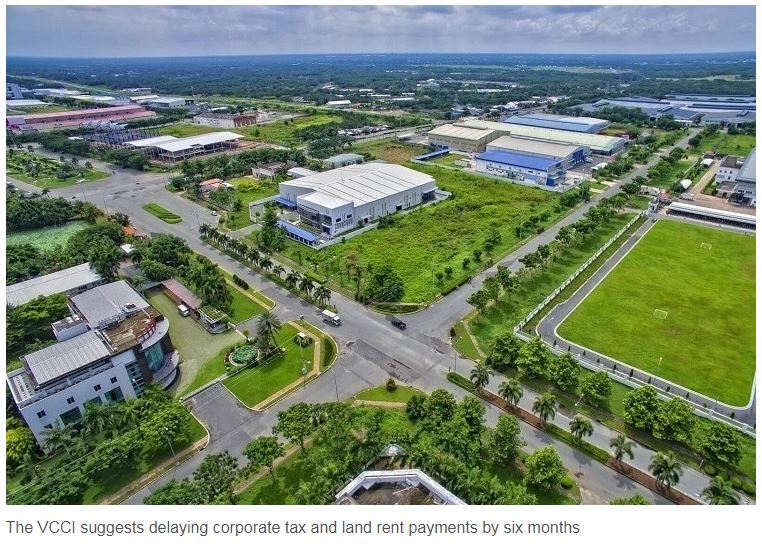Vietnam: VCCI suggests delaying corporate tax and land rent payments by six months
The purpose of delaying these payments is to help manage cash flows. However, businesses are still required to make full payments to the budget deficit.
The Vietnam Chamber of Commerce and Industry (VCCI) has sent out a document to the Ministry of Finance (MoF) offering suggestions on the gathering of responses to the draft decree on extending the deadline for reimbursement of VAT, corporate income tax, personal income tax, and land rent in 2023.
The VCCI, on behalf of the business community, supported the MoF’s request to prolong the due date for paying tax and land rent in 2023 so that firms and individuals can concentrate on the production and business that will spur economic growth.
This policy has been in effect for the last three years (2020, 2021, and 2022) and has had a number of positive effects on the national economy. This late payment of tax and land rent functions as a low-cost, short-term loan from the state to enterprises, according to the VCCI.
Order No.41/2020/ND-CP, Decree No.52/2021/ND-CP, and Decree No.34/2022/ND-CP permit businesses to defer tax payments from the first to the second half of the year. Nevertheless, all tax liabilities must be met by December 2023.
As has been seen by firms that have adopted this approach during the previous three years, the piling up of all tax payments at the end of the year, with a particular emphasis on December, creates significant cash flow issues for them.
Typically, this is the time of year when businesses need a substantial amount of short-term cash flow to prepare for Lunar New Year orders and to provide year-end incentives to employees.
In addition, financial institutions often hesitate to offer short-term loans from the end of the current year to the beginning of the next, instead forcing clients to have their loans mature before December 31 each year. This is done as the end of the year is the period when commercial banks must conform with credit growth limit rules.
“These variables make December 31 a blockage in terms of short-term capital inflows across the entire economy, when demand for working capital is strong, but supply is low,” according to the VCCI.
As a result of macroeconomic volatility in Vietnam and throughout the globe, it is anticipated that 2023 will continue to be a challenging year for corporate capital flows.
According to the VCCI, state budget revenues have surpassed projections recently, but public investment expenditures have fallen short. If this inactive cash serves to offer short-term capital for the economy at the end of the year and the start of the following year, it will help to eliminate the disparity in cash flow between the public and private sectors, thereby allowing businesses to encourage manufacturing and pay year-end bonuses.
“The proposal continues to ensure that the last date for paying taxes will be December 31, 2023. We are aware that this deadline exists to guarantee the annual budget. If the tax payment deadline is extended further, the estimate may not be met by December 31,” the VCCI admitted. “Yet, it should be noted that this tax revenue is not lost. Enterprises are still required to contribute fully to the budget deficit. The purpose of the tax payment deadline extension is only to control the economy’s financial flow and prevent seasonal imbalances.”
“Thus, it is suggested that the agency responsible for drafting investigate and report to the government and National Assembly on potential remedies to this issue, and if feasible, extend the filing date for all tax returns and payments in 2023 by six months,” concluded the VCCI.
Source: VIR


 English
English




